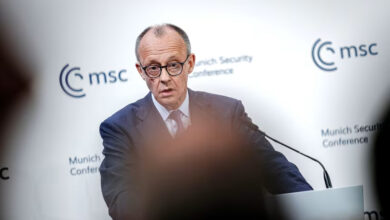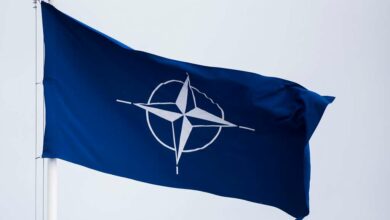Tripoli – Libyan rebels trying to overthrow Muammar Qadhafi have pushed to within about 80km (50 miles) of the capital, a rebel spokesman told Reuters on Monday, in the biggest rebel breakthrough in weeks.
In neighboring Tunisia three Libyan ministers, including the foreign minister, were holding talks with "foreign parties," the Tunisian state news agency reported.
The rebels, based in the Western Mountains region south-west of Tripoli, are fighting pro-Qadhafi forces for control of the town of Bir al-Ghanem, an advance of about 30km north from their previous position, their spokesman told Reuters.
"We are on the southern and western outskirts of Bir al-Ghanam," Juma Ibrahim, a rebel spokesman in the nearby town of Zintan, said by telephone.
"There were battles there most of yesterday. Some of our fighters were martyred and they (government forces) also suffered casualties and we captured equipment and vehicles. It's quiet there today and the rebels are still in their positions," he said.
A Reuters reporter in the center of Tripoli heard at least two loud explosions on Sunday. The location of the blasts was not clear, a plume of smoke could be seen rising from the direction of Qadhafi's Bab al-Aziziyah compound.
Judges at the International Criminal Court are scheduled to rule on Monday on a request from prosecutors to issue arrest warrants for Qadhafi, his son Saif al-Islam, and Muammar Qadhafi's brother-in-law Abdullah al-Senussi.
The rebels – backed by NATO air support – have been battling Qadhafi's forces since late February, when thousands of people rose up against his 41-year-rule, prompting a fierce crackdown by Qadhafi's security forces.
The revolt has turned into the bloodiest of the Arab Spring uprisings sweeping the Middle East.
For weeks now, rebels in their strong-hold in the east and enclaves in western Libya have been unable to make significant advances, while NATO air strikes have failed to dislodge Qadhafi, straining the Western alliance.
Analysts say if rebels outside the capital start gaining momentum, that could inspire anti-Qadhafi groups inside the capital to rise up, a development many believe is the most effective way of forcing him out.
TUNISIA TALKS
Tunisia's TAP state news agency reported late on Sunday that Libyan Foreign Minister Abdelati Obeidi was on the island of Djerba, in southern Tunisia, where he was "negotiating with several foreign parties."
It gave no details on the talks. Libya's rebel leadership, in the eastern city of Benghazi, said last week it was in indirect contact with Qadhafi's government, via foreign intermediaries, about a possible peace settlement.
Obeidi was joined at the Djerba talks by Health Minister Ahmed Hijazi and Social Affairs Minister Ibrahim Sherif, the Tunisian news agency reported.
Libyan officials frequently use Djerba, which is near the border with Libya, as a stopover on foreign trips because flights from Tripoli have ceased.
Libyan state television on Monday showed Obeidi in Sierra Leone meeting President Ernest Bai Koroma. It was not clear from the footage when the meeting took place.
SIGNS OF DISCORD
Qadhafi says he has no intention of relinquishing his grip on power. He has said the rebels are criminals and Al-Qaeda militants, and has called the NATO bombing campaign an act of colonial aggression aimed at stealing Libya's oil.
There were signs of discord within Qadhafi's ruling circle at the weekend over how best to proceed.
A government spokesman early on Sunday renewed an offer to hold elections to decide on Qadhafi's political future. The idea had previously been proposed by one of Qadhafi's sons, Saif al-Islam.
Later in the day, the same spokesman stepped back from those comments, saying Qadhafi was the historical choice of the Libyan people and could not be cast aside.
"Muammar Qadhafi is Libya's historical symbol, and he is above all political actions, above all political and tactical games," government spokesman Moussa Ibrahim said in a statement issued late on Sunday.
"In this current stage and in the future, Qadhafi is the historical choice which we cannot drop."
"As for the current and future Libya, it is up to the people and the leadership to decide it, and it is not up to the armed groups, nor up to NATO to decide it."
"It is not possible for a new stage to begin before NATO stops its aggression against Libya. As for the armed groups, they have no force on the ground, nor popular representation," the statement said.




